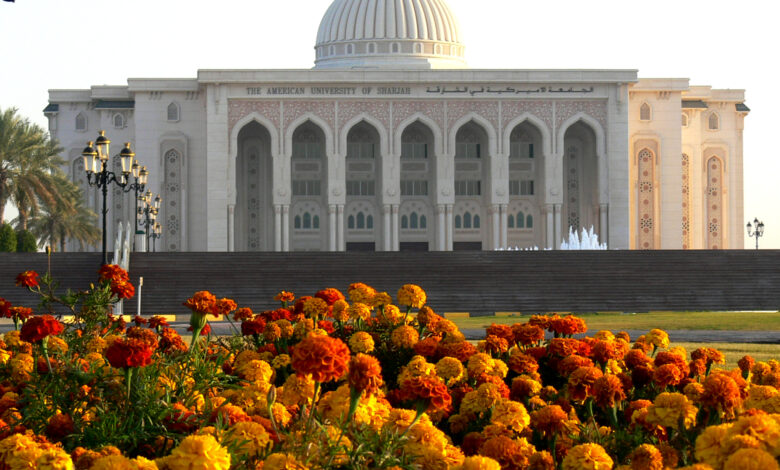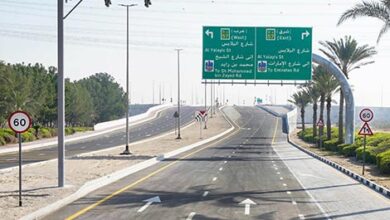
Thirty-three researchers from American University of Sharjah (AUS) have been recognized for their global research influence and impact, as featured in the Stanford-Elsevier Top Scientists List 2024.
Created by Stanford University using data provided by scientific publisher Elsevier from Scopus, a database for influential research, the recognition list is a ranking that is based on Scopus-indexed publication citation metrics. To be ranked in the top two percent globally, a researcher must be among the top 100,000 ranked scientists across all fields for the most recent year of data collection or for full career publications.
Scientists who fall outside the group can still be recognized as ranked within the top two percent of their specific field and hence included in the listing. This is the seventh edition of the list, based on a Scopus data snapshot taken on August 1, 2024, and covers citation data up to the end of 2023.
The list featured three AUS researchers among the top two percent of scientists worldwide for their career-long impact, 18 additional researchers for their career-long impact in their respective fields, 16 researchers for their impact in the most recent year, and 10 additional researchers for their impact in the most recent year within their field. AUS is among the top five UAE universities in the number of researchers included in the Stanford-Elsevier Top Scientists List 2024.
This is not the first time AUS faculty members have received global recognition. Their ongoing research across diverse fields, including engineering, sciences, business, arts and humanities, has consistently earned them acknowledgement on international platforms. AUS is ranked third in the UAE for citations per faculty by the QS World University Rankings (2025). It is also ranked first in the UAE for arts and humanities and architecture and the built environment, second in business and management and among the top five universities in the UAE for engineering and technology (2024). AUS faculty members have appeared on the Stanford-Elsevier Top Scientists List since 2019, with the number of recognized faculty increasing each year.
“As AUS continues to strengthen its research capabilities, we are proud of the global recognition our faculty have been receiving,” said Dr. Tod Laursen, Chancellor of AUS. “Their dedication to advancing knowledge and making a meaningful impact in their respective fields is a testament to the vibrant research environment we have cultivated at AUS. This recognition reaffirms our commitment to excellence and our role as a leading institution in the region.”
With research as a key pillar of its mission, AUS has been actively advancing its agenda, contributing to regional and global advancements across various disciplines. It has made notable strides in developing specialized research centers aimed at addressing critical world challenges. In 2023, it launched the Energy, Water and Sustainable Environment Research Center; the Materials Research Center; and the Center for Entrepreneurship, Innovation and Sustainable Development. This year, it also approved the establishment of the Advanced Biosciences and Bioengineering Research Center; the Artificial Intelligence, Smart Infrastructure and Robotics Research Center; and the Center for Arab Studies and Islamic Civilization.
The university also boasts 10 endowed chairs and professorships in key fields, designed to attract and retain distinguished scholars and researchers who have demonstrated exceptional expertise and leadership in their disciplines. These positions significantly contribute to AUS’ mission of driving intellectual progress across the region and beyond. Additionally, the university has focused on fostering collaboration with industry, government and academic institutions. By engaging in joint projects and initiatives, AUS strengthens its research capabilities and ensures that its work remains relevant to societal needs.
Recognized among the top two percent of scientists worldwide for their career-long impact: Dr. Mohamed Ben-Daya, Professor in Industrial Engineering; Dr. Moncer Hariga, Professor in Industrial Engineering; and Dr. John Klironomos, Professor in Biology, Chemistry and Environmental Sciences.
The list also featured the top two percent global scientists with career-long impact in their respective fields, including Dr. Jamal Abdalla, Professor in Civil Engineering; Dr. Farid Abed, Professor in Civil Engineering and Dana Gas Chair in Engineering; Late Dr. Saad Ahmed, Professor in Mechanical Engineering; Dr. Abdulrahman Al-Ali, Professor in Computer Science and Engineering; Dr. Sameer Al-Asheh, Professor and Head, Department of Chemical and Biological Engineering; Dr. Fadi Aloul, Professor in Computer Science and Engineering and Dean, College of Engineering;
Dr. Ayman Badawi, Professor in Mathematics and Statistics; Dr. Narjess Boubakri, Professor in Finance and Dean, School of Business Administration; Dr. Rached Dhaouadi, Professor in Electrical Engineering; Dr. Sameh El-Sayegh, Professor and Head, Department of Civil Engineering; Dr. Samir Emam, Professor in Mechanical Engineering; Dr. Steven Griffiths, Professor and Vice Chancellor for Research; Dr. Rami Hawileh, Professor in Civil Engineering and Riad T. Sadek Chair in Civil Engineering; Dr. Ghaleb Husseini, Professor in Chemical and Biological Engineering; Dr. Tod Lauresen, Professor and Chancellor of AUS; Dr. Habibur Rehman, Professor in Electrical Engineering; Dr. Yousef Salamin, Professor in Physics; and Dr. Tamer Shanableh, Professor in Computer Science and Engineering.
The list further included the top two percent world scientists for their significant global impact in the most recent year. It featured Dr. Jamal Abdalla, Professor in Civil Engineering; Dr. Farid Abed, Professor Civil Engineering and Dana Gas Chair in Engineering; Dr. Abdulrahman Al-Ali, Professor in Computer Science and Engineering; Dr. Amani Al-Othman, Associate Professor in Chemical and Biological Engineering and Petrofac Research Chair in Renewable Energy; Dr. Hasanan Baber, Assistant Professor in Management, Strategy and Entrepreneurship; Dr. Ayman Badawi, Professor in Mathematics and Statistics; Dr. Rodrigo Basco, Professor in Management, Strategy and Entrepreneurship and Sheikh Saoud bin Khalid bin Khalid Al-Qassimi Chair in Family Business;
Dr. Mohamed Ben-Daya, Professor in Industrial Engineering; Dr. Narjess Boubakri, Professor in Finance and Dean, School of Business Administration; Dr. George Christodoulides, Professor in Marketing and Information Systems, Chalhoub Professor in Luxury and Management, and Associate Dean for Research and Innovation; Dr. Sameh El-Sayegh, Professor and Head, Department of Civil Engineering; Dr. Samir Emam, Professor in Mechanical Engineering; Dr. Steven Griffiths, Professor and Vice Chancellor for Research; Hussein Hamada, Post Doctoral Fellow, College of Architecture, Art and Design; Dr. Rami Hawileh, Professor in Civil Engineering and Riad T. Sadek Chair in Civil Engineering; and Dr. John Klironomos, Professor in Biology , Chemistry and Environmental Sciences.
Also named for their significant global impact in the most recent year in their respective fields were
Dr. Fadi Aloul, Professor in Computer Science and Engineering and Dean, College of Engineering; Nour AlSawaftah, PhD student in Materials Science and Engineering; Dr. Rached Dhaouadi, Professor in Electrical Engineering; Dr. Mehdi Ghommem, Associate Professor in Mechanical Engineering and Associate Dean for Research, Outreach and Innovation; Dr. Mohammad Hamdan, Professor in Mechanical Engineering; Dr. Ghaleb Husseini, Professor in Chemical and Biological Engineering; Dr. Amin Majdalawieh, Professor and Head, Department of Biology, Chemistry and Environmental Sciences; Dr. Mehmet Fatih Orhan, Associate Professor in Mechanical Engineering; Dr. Yousef Salamin, Professor in Physics; and Dr. Mostafa Shaaban, Associate Professor in Electrical Engineering and Director, Energy, Water and Sustainable Environment Research Center.

